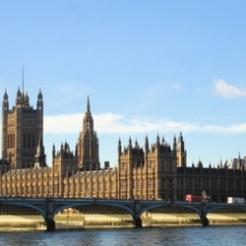The Public Accounts Committee has criticised the Treasury for failing to incentivise investment in early action, and instead focusing on short-term results, as it calls for mandatory 10-year assessments of all spending programmes.
Today, the Public Accounts Committee (PAC) has released its conclusions on its review of early action in public service delivery policy, which has built on some of the recommendations made by the Early Action Taskforce, a coalition of social sector organisations including NCVO, NPC, Community Links and Social Finance.
In its evidence to the PAC, the Early Action Taskforce said the Treasury should consider the 10-year implications of its decisions when conducting spending reviews.
And today, the PAC has taken this forward, recommending that Treasury introduce mandatory 10-year impact assessments for all departmental spending programmes.
The PAC also say that the Treasury should look at the ring-fencing of early action budgets, and that Treasury and other government departments should provide incentives for local commissioners and frontline practitioners to implement early action initiatives.
The PAC also warns that the case for early action is hindered by a lack of evidence on the impact and cost effectiveness, and that joint working on long-term social problems is poor.
The Early Action Task Force welcomed the PAC’s report, which said “government has consistently failed to deliver” on early action.
Taxpayer suffers for failure to prevent
David Robinson, chair of the Early Action Task Force and co-founder of east London charity Community Links, said:
“Government spends £400bn a year on key services but only a derisory proportion on crucial early action work which saves money, improves lives and supports growth. This short-sightedness is costing us dear – the taxpayer is shelling out for our failure to prevent.
“We strongly welcome the PAC’s report exposing this scandal and its call for the Treasury to take the lead in driving early action across government.
“This is not a one-off crisis but an endemic failure in how government works. We expect the PAC’s recommendations to lead to a profound shift towards sustainable solutions and away from short-term crisis management.
“Government plans won’t work unless they add up not just today but over the next ten years.”
Treasury squeezes out preventative work
Dan Corry, chief executive of NPC and member of the Early Action Taskforce, added: "NPC cares about this issue a lot as it sees so many charities struggle to get funding for early action and preventative work.
"As an ex-Treasury officer I've seen how the system works inside and that how it's set up means preventative work gets squeezed out by spending for immediate need. It's good that the PAC are embracing the ideas of the Early Action Taskforce, as a shift in spending is vital.
"It's an important day and I look forward to the government responding in a positive way."
Early action morally and fiscally right
And Debbie Pippard, head of programmes at the Barrow Cadbury Trust and fellow member of the Early Action Task Force, commented:
“By failing to invest in early action the government is allowing a build-up of expensive social problems which will inevitably have to be dealt with by tomorrow’s taxpayers – we would argue that investment in early action is both morally right and fiscally sensible, because it will help young people have a better start in life, and ultimately secure savings to the public purse.”
The National Audit Office has estimated that across four major central government departments only 6 per cent of funding is for early action.








